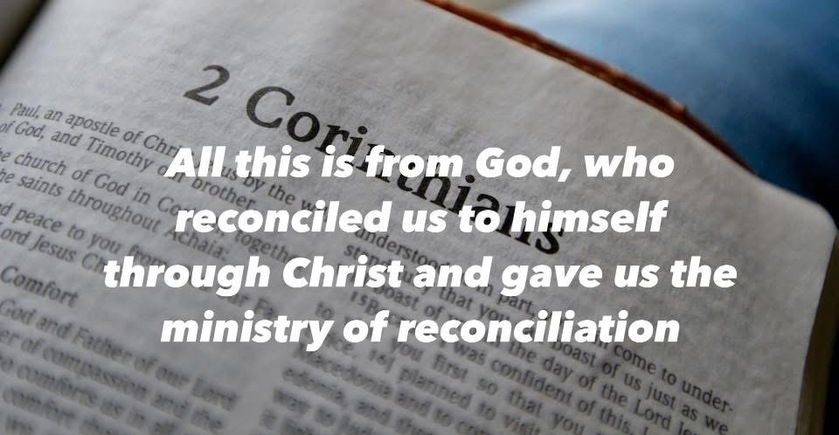Defining Jesus: Jesus’ Self-Revelation as Mighty God
What did Jesus say about himself?
John 5:17-24
Jesus answered them, "My Father is working until now, and I am working." This was why the Jews were seeking all the more to kill him, because not only was he breaking the Sabbath, but he was even calling God his own Father, making himself equal with God. So Jesus said to them, "Truly, truly, I say to you, the Son can do nothing of his own accord, but only what he sees the Father doing. For whatever the Father does, that the Son does likewise. For the Father loves the Son and shows him all that he himself is doing. And greater works than these will he show him, so that you may marvel. For as the Father raises the dead and gives them life, so also the Son gives life to whom he will. For the Father judges no one, but has given all judgment to the Son, that all may honor the Son, just as they honor the Father. Whoever does not honor the Son does not honor the Father who sent him. Truly, truly, I say to you, whoever hears my word and believes him who sent me has eternal life. He does not come into judgment, but has passed from death to life."
John chapter five powerfully illustrates key aspects of the Trinity and Jesus’ divinity. Jesus defends His actions by equating His work with the Father’s (v. 17), he claims equality with God (v. 18), he describes their inseparable unity in action and authority (vv. 19-23), and highlights the life-giving power shared between them (v. 21, 24). Jesus is emphasizing how honoring Him (the Only Begotten Son) is essential to honoring the Father, and the promise of eternal life through belief in Him as the "I Am".
Jesus claims he's equal to God in work, never stopping, always working at keeping creation alive. Jesus is saying that he is the Lord of the Sabbath and is always working, even on the Sabbath (Hebrews 1). He is unrestrained by anything on earth or in heaven. He is not trapped by our linear perspective.
Jesus claims he is equal to God in nature, not another god, but One with God the Father. He reaffirms his deity in his nature. Whatever the Father does the Son does in the same manner. It is in fact impossible for him to do anything other than what the Father does. For the Father loves the Son and gives him all the knowledge the Father possesses. You can't say, "yes he's God, but something less", no, He's God in nature and in works.
And of course, we know that Jesus said: John 10:30 "I and the Father are one." This statement comes in the context of Jesus describing Himself as the Good Shepherd who lays down His life for the sheep. And it is part of a heated exchange with Jewish leaders at the temple during the Feast of Dedication. They challenge Him to declare if He is the Messiah, and Jesus responds by pointing to His works as evidence of His unity with the Father.
So, it is clear that Jesus is indeed laying claim to being the long sought after Messiah. And it's not a confusing question because the leaders understand this as a claim to divinity, which they consider blasphemy, leading them to attempt to stone Him.
John's gospel begins by explaining this shared nature:
John 1:1-3, 14
"In the beginning was the Word, and the Word was with God, and the Word was God. He was in the beginning with God. All things were made through him, and without him was not any thing made that was made…And the Word became flesh and dwelt among us, and we have seen his glory, glory as of the only Son from the Father, full of grace and truth."
This bears repeating..."the only Son from the Father, full of grace and truth."
Equal in nature and works with the God of the universe.
Jesus also goes on to say he is also equal to God in power. That's why John opens his gospel by saying, "in Him is life, and the life was the light of men." (John 1:4). If it gives life it is ultimate power. Jesus laid down his life and raised it up again. He did that!
And Jesus claimed to be equal to the Father in authority. Jesus claims to be the ultimate authority, even while they were persecuting him and murdering him on a cross. The Father gave him this authority, and he is in perfect obedience to that will.
Q: Why does God the Father delegate this authority to Jesus?
A: So that we will understand that when we are dealing with Jesus, we are dealing with the ultimate authority. He is in perfect harmony with the Father. He's the supreme judge of the universe. And that is his purpose when he returns. Ay his first advent he came to save his people, when he returns, he brings judgement.
So, Jesus is equal to God in works, nature, power, and authority. And he also claims to be equal to God in truth. John 14:6 "Jesus said to him, ‘I am the way, and the truth, and the life. No one comes to the Father except through me.’" Jesus said you must listen to him, equally to the Father and equally to him. He said, "Truly, truly, I say to you, whoever hears my word and believes him who sent me has eternal life." Equal in truth is what he said. And this statement was truly shocking to the Jewish people.
So again, Jesus not only claims to be equal to the Father in works, nature, power, authority, and now truth, but he also claims to be equal in honor. He said, "Whoever does not honor the Son does not honor the Father who sent him." The Israelites saw Jesus as an insane demoniac, a sorcerer, and they hated him, seeking to murder him. Not because he was claiming to be a god, but because he came in his Father's name, and claimed to be Almighty God, and they would never receive Him as God Almighty.
At the end of the day from a Hebrew perspective, this emphasis on the Messiah’s identity is spot-on; Jesus’ words and works were meant to reveal Him as the fulfillment of Old Testament promises (e.g., Isaiah 9:6-7, where the child born is called "Mighty God" ). And they could not recognize that about him, John 1:11 “He came to his own, and his own people did not receive him.” They were blinded by sin, as Paul explains this in 2 Corinthians 3:14-16.
"But their minds were hardened. For to this day, when they read the old covenant, that same veil remains unlifted, because only through Christ is it taken away. Yes, to this day whenever Moses is read a veil lies over their hearts. But when one turns to the Lord, the veil is removed."
These assertions made by Jesus weren’t abstract theology but direct fulfillments of Old Testament messianic prophecies, which many failed to recognize due to their hardened hearts and expectations of a political conqueror rather than a suffering servant who is also divine. They were, and many still are, stuck on a linear point-of-view. They can't understand how God Almighty can do ALL things, including be in three persons, and die on a cross and be raised again on the third day.
At the end of the day it’s a Trinitarian claim; honoring Jesus as God is inseparable from honoring the Father, because they share the same essence (as in John 10:30). And as Mighty God, He brings order from chaos, subdues rebellion, empowers obedience, forgives sins, defeats Satan, and restores our souls, proving His equality in power and authority. And forever defining for us who Jesus is when we are asked by Jesus...
Matthew 16:15
He said to them, "But who do you say that I am?"



















